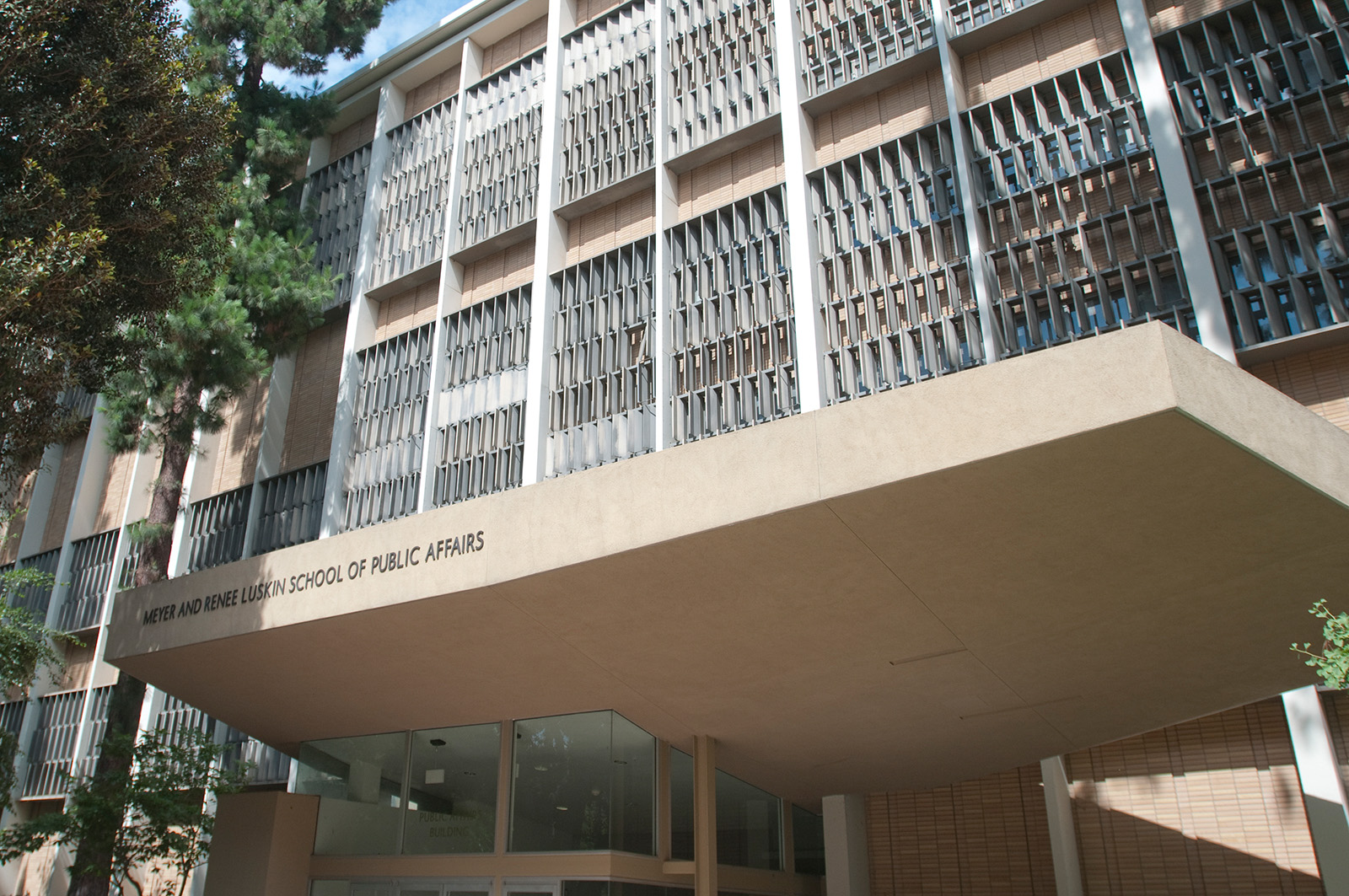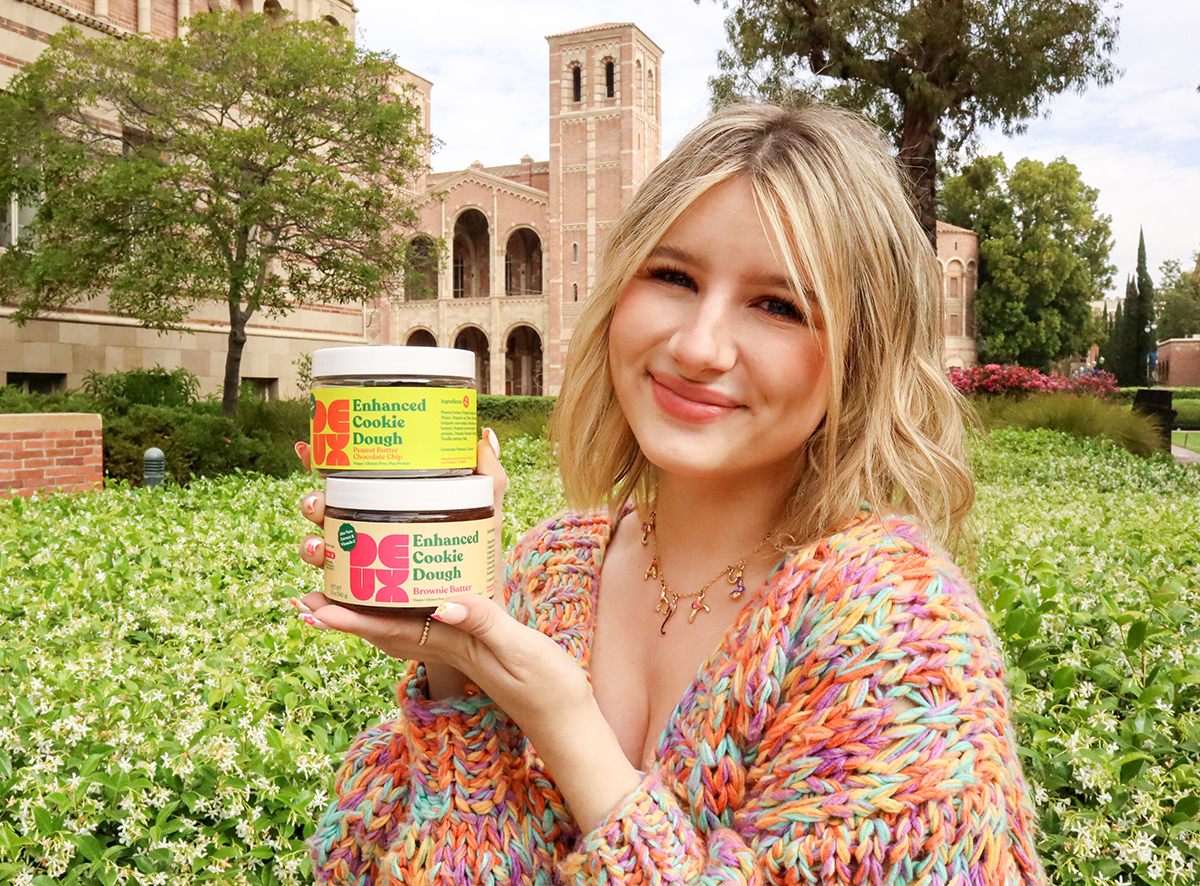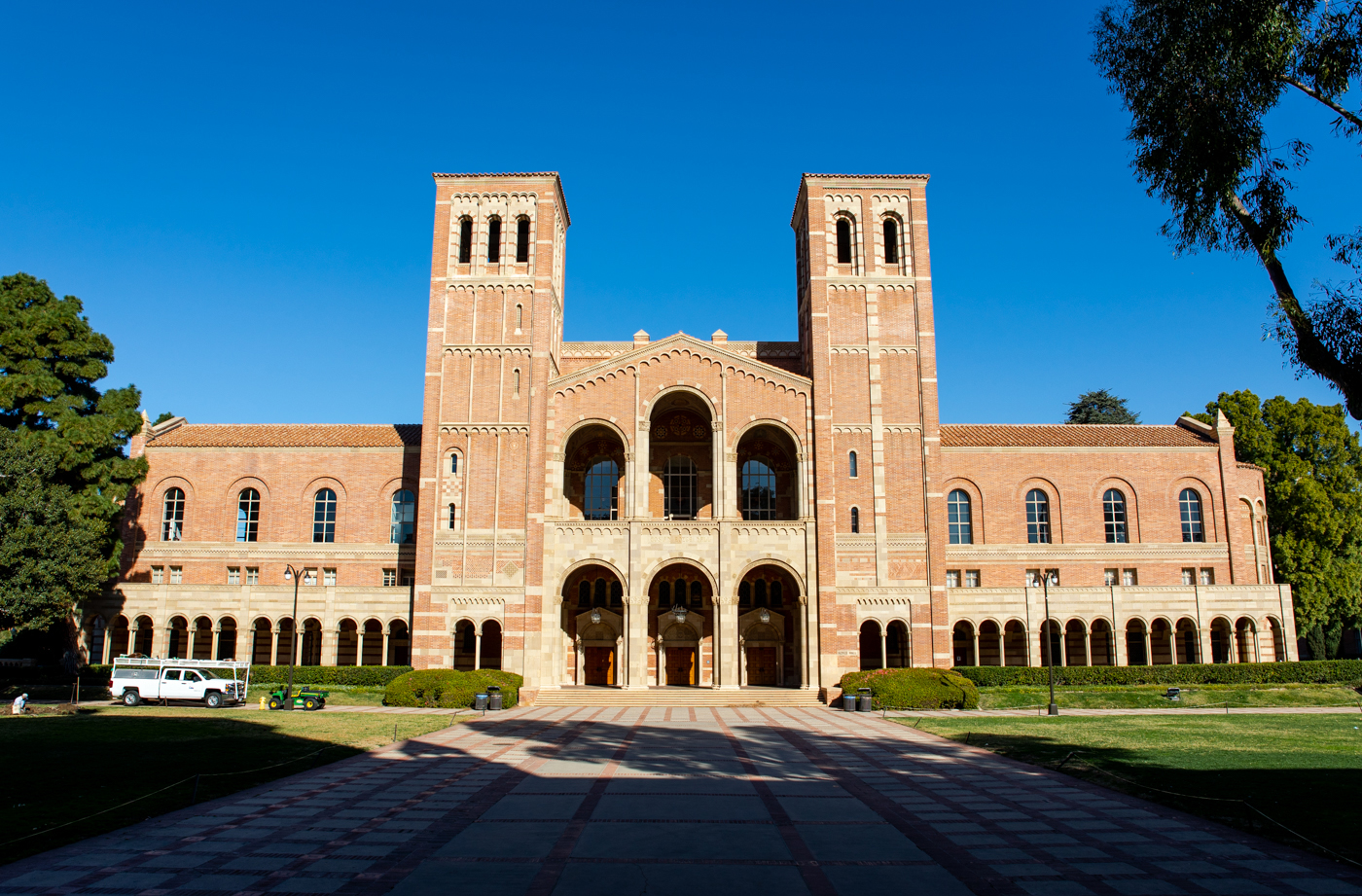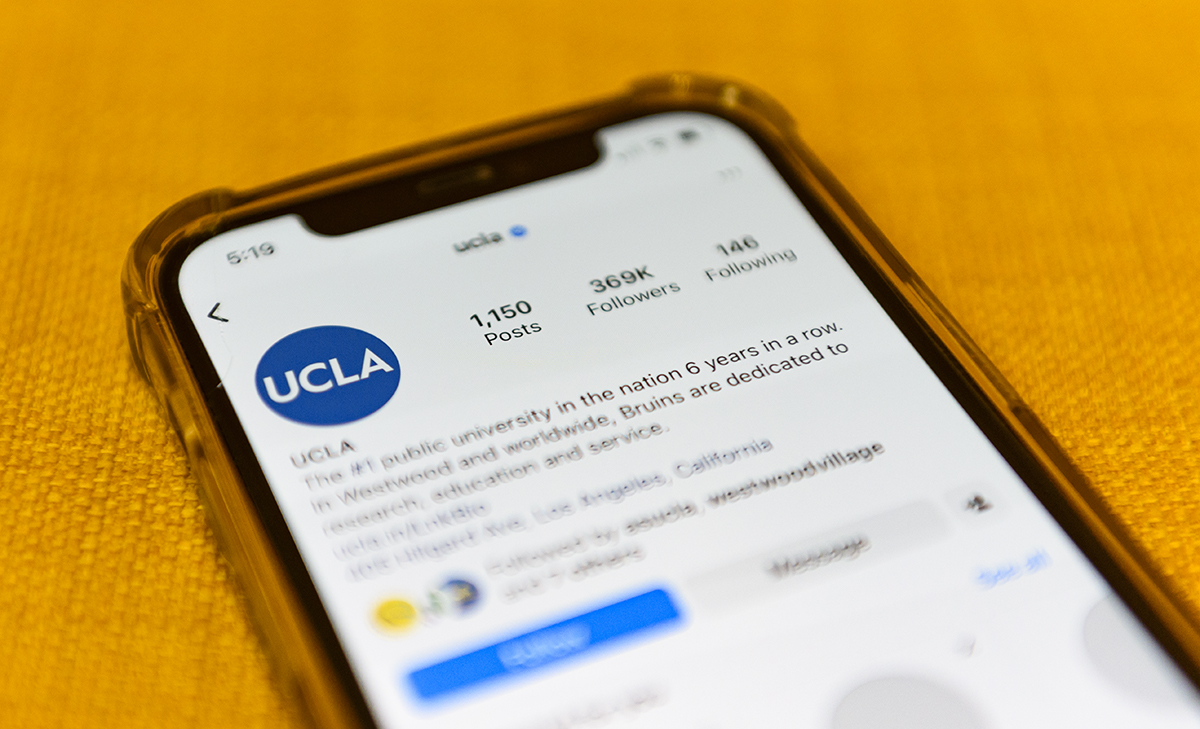Contagious Kindness Project uses social media to showcase acts of altruism

Pictured is the Luskin School of Public Affairs, which houses the Bedari Kindness Institute. (Daily Bruin file photo)
By Lori Garavartanian
Jan. 27, 2024 7:33 p.m.
This post was updated Jan. 28 at 11:00 p.m.
While people tend to shy away from contagious things, for the Bedari Kindness Institute’s Contagious Kindness Project, they can be something to embrace – maybe in the form of a hug.
The project, led by UCLA students, was founded on the premise that witnessing kind acts inspires people to be kinder and motivates them to make the world a better place, said Daniel Fessler, a professor of anthropology and director of the Bedari Kindness Institute. This anthology curated on social media is meant to be an antidote to all the information available to us about how hostile and selfish people can be, Fessler said.
Contagious kindness, or what psychologists call elevation, is an uplifting feeling elicited when people observe acts of altruism, Fessler said. Humans are often bombarded with accounts of cruel and unkind behavior, he said. It’s important to ask if there can be a space on the internet where individuals are uplifted and exposed to cooperation, he added.
“One of the remarkable things about human beings compared to other living things on the planet is that we are incredibly cooperative with unrelated individuals,” Fessler said. “Our default orientation towards other members of our species is pretty cooperative.”
Through social media, the project aims to expose individuals to kindness and positivity, said Daniel Penn, one of the project’s leaders. Students are collecting videos in which people describe observing acts of kindness and altruism of which they are not the beneficiary, Fessler said.
“The idea is creating an anthology that tries to combat the overwhelming negative bias and gamification of likes and clout and sharing stories that are really only to benefit oneself at times,” Penn said. “Rather than seeing overwhelming negative information, they start to see an overwhelming amount of genuine positive kindness.”
Participants in the project are asked to describe altruistic acts they have witnessed in person or online, but not ones they have personally performed, said Reem Chaar, a UCLA alumnus working on the project. This curbs a tendency to be boastful about one’s own actions and motivates people to be kind for reasons outside of recognition, she said.
Beyond the Contagious Kindness Project, the work of the Bedari Kindness Institute – which leads the project – extends to other academic fields and social applications.
The institute, founded in 2019, includes a variety of faculty members across campus who come from departments such as anthropology, psychology and sociology, Fessler said. For example, Fessler said members of the institute study the ways kindness can be promoted in health care provider-patient relationships, the psychological benefits of kindness and the use of kindness in criminal justice.
Examples of this happened during the COVID-19 pandemic, Chaar said. The institute made brochures debunking false claims about the virus but aimed to be kind and explanatory in the process, she added.
“In order to get people to do the right thing, you have to approach them with kindness,” Chaar said.
Penn said he thinks there is not enough cultural emphasis on kindness and that there is an overwhelming negative bias online and a gamification of likes and clout. He added that he thinks people need to find a way to incorporate more kindness into policy.
For example, the study of kindness helps combat the stigmatization of mental health on college campuses, Penn said. Genuine acts of kindness can increase a focus on mental health efforts and initiatives, he added.
“It (kindness) makes the world a better place,” Chaar said. “It’s very important for people to show each other that a lot of us are still inherently kind, and we want to do good things.”
This kindness extends to campus. When people are new to campus, for example, it is important for them to come into a welcoming environment where they can feel comfortable in learning, she said.
Fessler said there are endless applications for kindness. He added that even everyday choices and little acts of kindness can impact how people perceive each other and themselves.
“Walking across campus, how often do you see acts of kindness? How often do you see acts of selfishness? How do each of those make you feel?” Fessler said. “Acts of kindness, … they’re good for us. They’re good for the people who witness them and for the people who receive them.”






